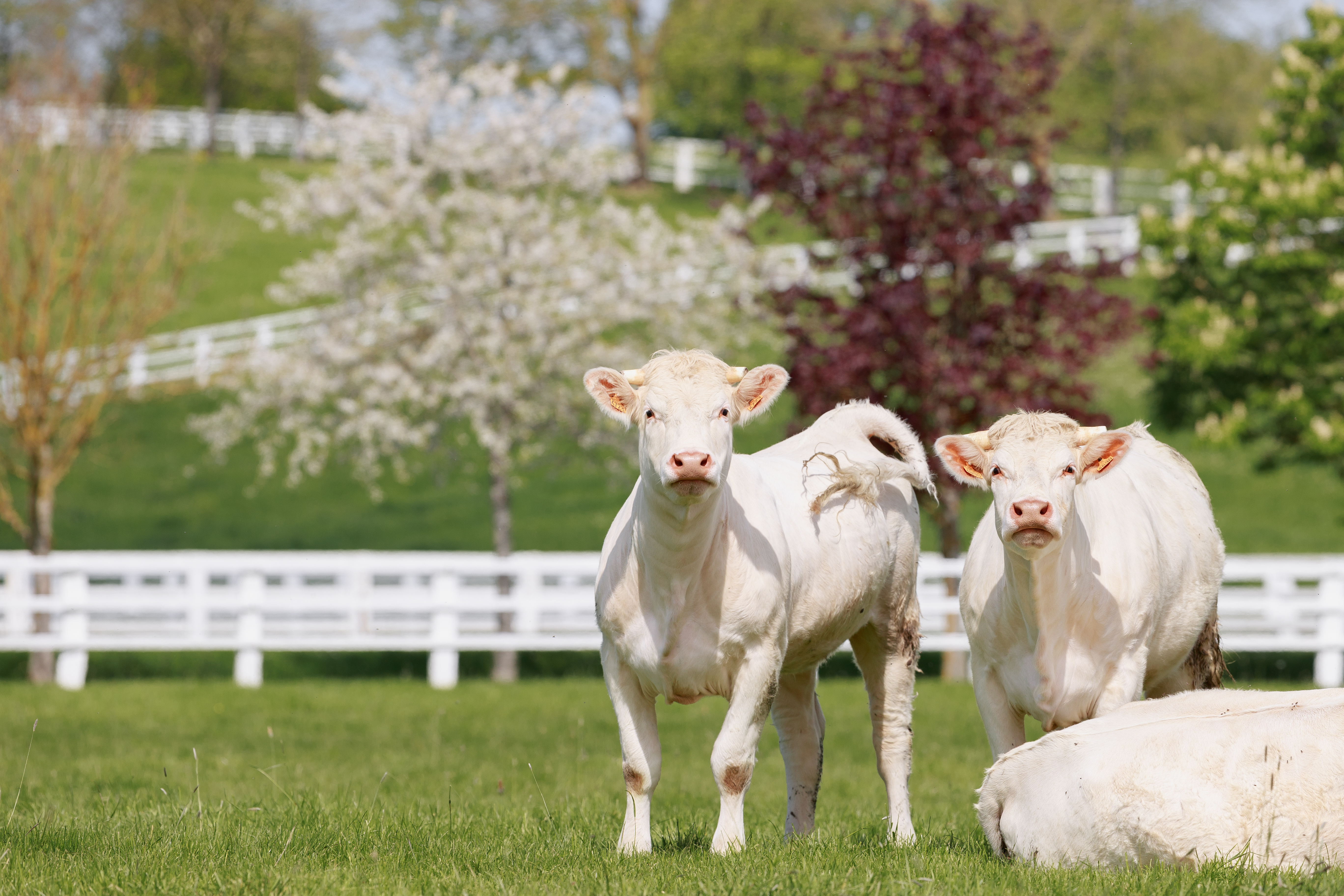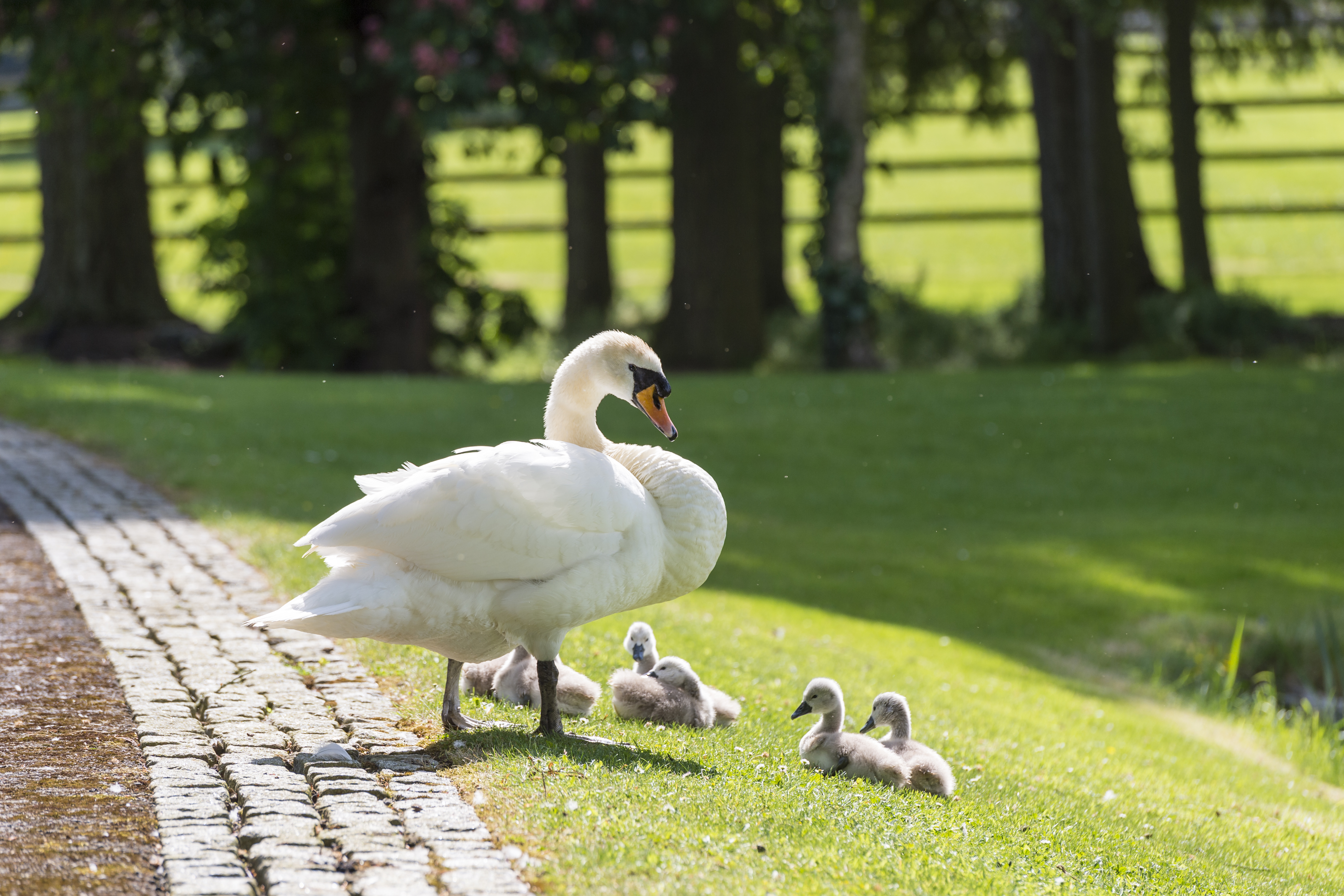Environment care
Protection of the environment is an issue close to the heart of the Aga Khan family. The Aga Khan Studs demonstrate a commitment to environmental care through sustainable farm management practices, which encompass efforts to balance ecological preservation with effective equine care.

Cattle and sheep help maintain the pastures at the Aga Khan Studs.
The stud farms in Ireland and France are living examples of this ethos. They are home to ancient trees, meandering streams, rich hedgerows, woodlands, and vibrant wildflower meadows, creating havens teeming with wildlife. Across these landscapes, significant areas of grassland have been rewilded, fostering biodiversity and supporting native ecosystems.
We actively implement measures to minimize our carbon footprint, including the use of electric farm vehicles and renewable energy where feasible. Organic waste streams, such as horse bedding and manure, are carefully recycled or composted to enrich the soil and reduce environmental impact. We prioritize sourcing hay and straw locally to lower transport emissions and bolster regional economies. Additionally, traditional pasture management techniques—such as rotating sheep and cattle grazing—help maintain soil health and plant diversity.

The natural environment promotes biodiversity and provides a safe environment for a variety of wildlife.
The preservation of local heritage is also central to our approach. All farm buildings are regularly maintained and sensitively refurbished to respect and retain the vernacular architecture of each site, blending seamlessly with their rural surroundings.
In France, the four Aga Khan stud farms proudly hold EquuRES accreditation, recognizing their dedication to exemplary environmental stewardship and sustainable equine management.